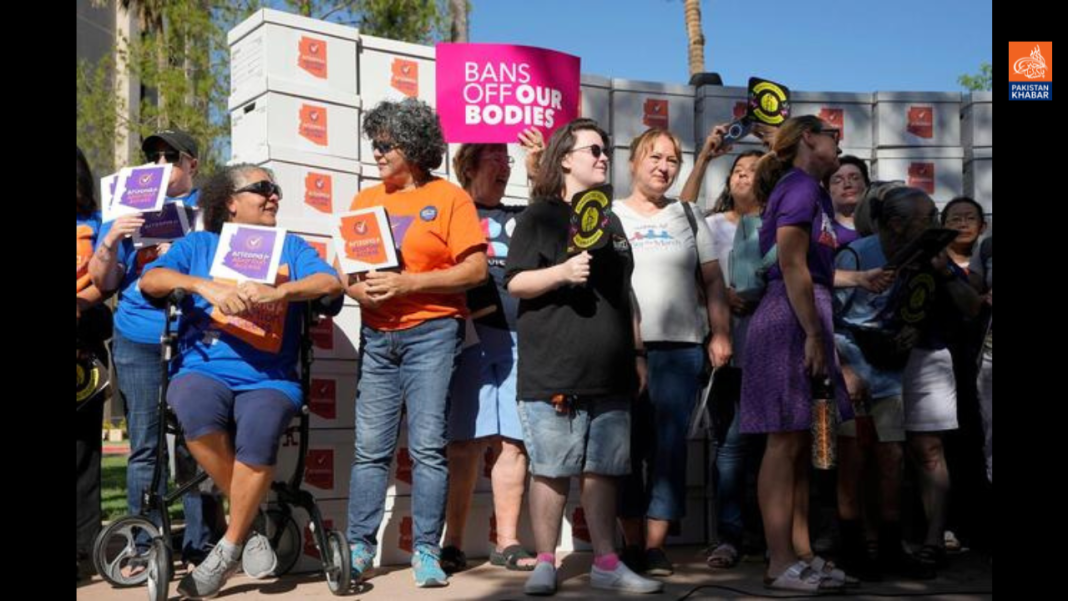Arizona’s Supreme Court has ruled that a foetus can be referred to as an “unborn human being” on ballots for the upcoming November vote, where voters will decide whether to enshrine abortion rights in the state constitution.
Abortion has emerged as a critical political issue in the U.S. presidential election year, particularly in swing states like Arizona, where President Joe Biden narrowly defeated Republican Donald Trump by 10,000 votes in 2020.
The proposed Arizona ballot initiative aims to extend abortion access to 24 weeks of pregnancy, up from the current 15-week limit, and includes exceptions to “protect the life or physical or mental health of the pregnant individual.” Critics argue that these exceptions could potentially be used to permit abortions beyond fetal viability.
On Wednesday, the Arizona Supreme Court ruled that the language drafted by a Republican-majority legislative council, which refers to foetuses and embryos as “unborn human beings,” meets the requirements for impartiality.
The Arizona Secretary of State reported that a record 577,971 valid signatures were submitted to qualify the initiative for the ballot, significantly exceeding the required 383,923 signatures.
Following the U.S. Supreme Court’s June 2022 decision to overturn the nationwide right to abortion, many Republican-led states have enacted restrictive or outright bans. Earlier this year, the Arizona Supreme Court upheld an 1864 law banning abortion at any stage unless necessary to save the mother’s life. This ruling faced significant backlash and was repealed a month later after several Republicans joined Democrats in the state legislature.
Arizona’s current 15-week abortion ban includes exceptions only to save the mother’s life and does not allow for abortions in cases of rape or incest. Other states are also considering abortion access measures in the November election, including Colorado, Florida, Maryland, Nevada, New York, and South Dakota, with several still pending.




